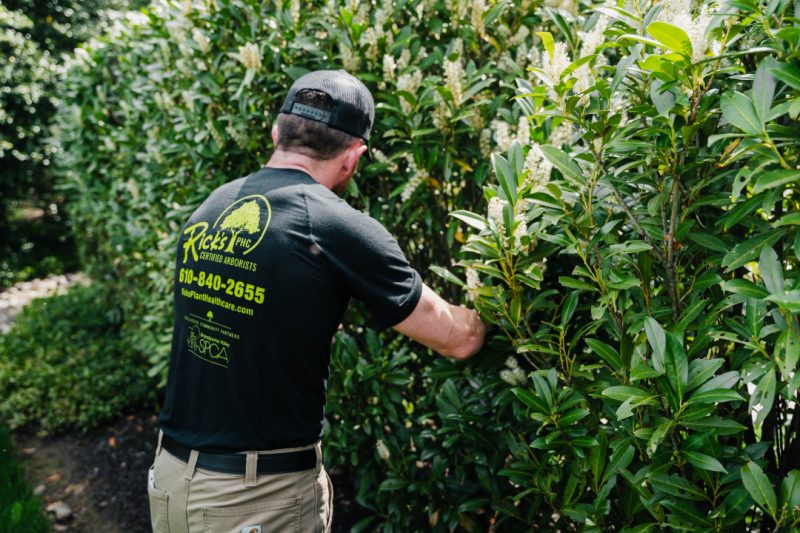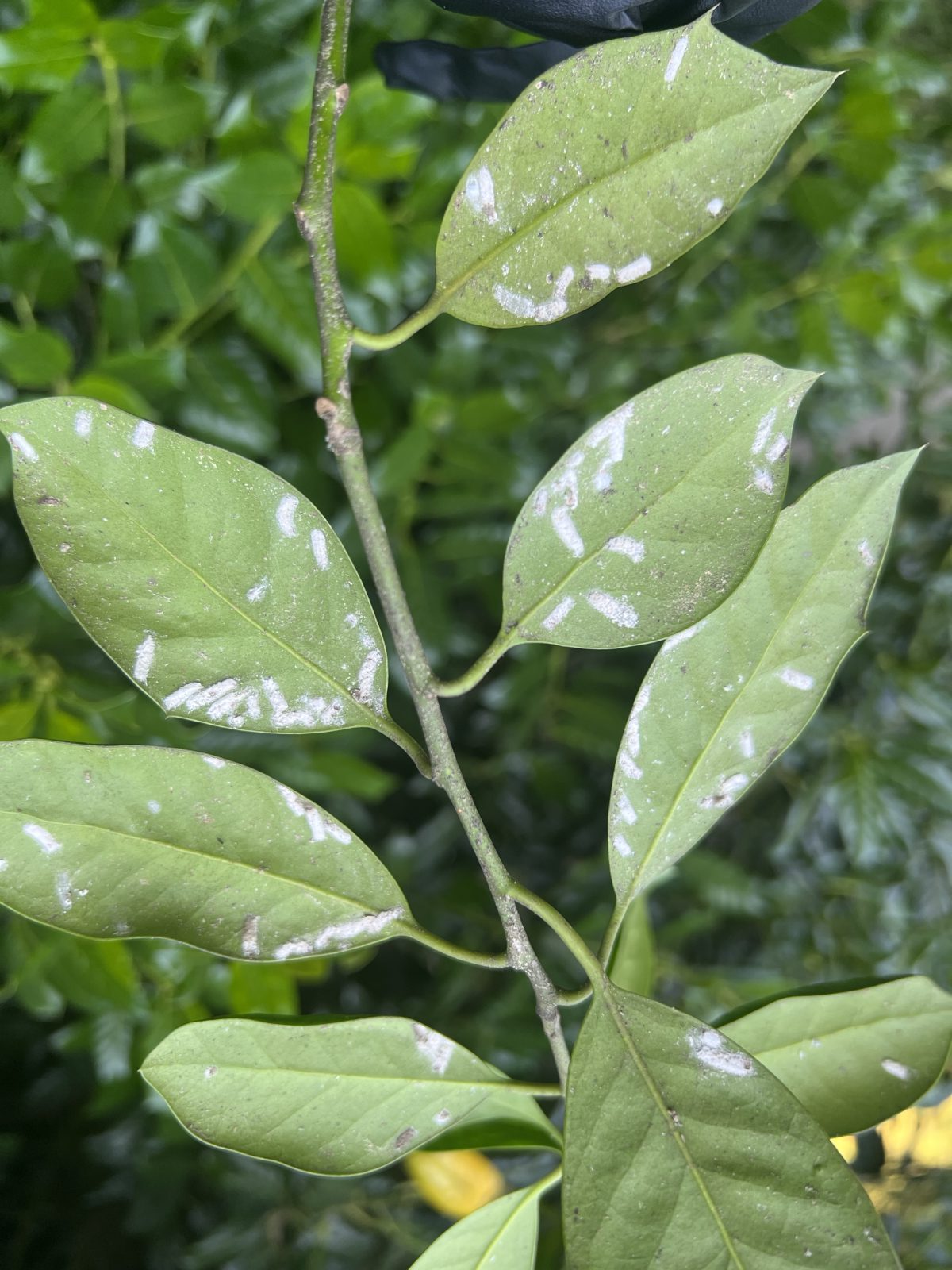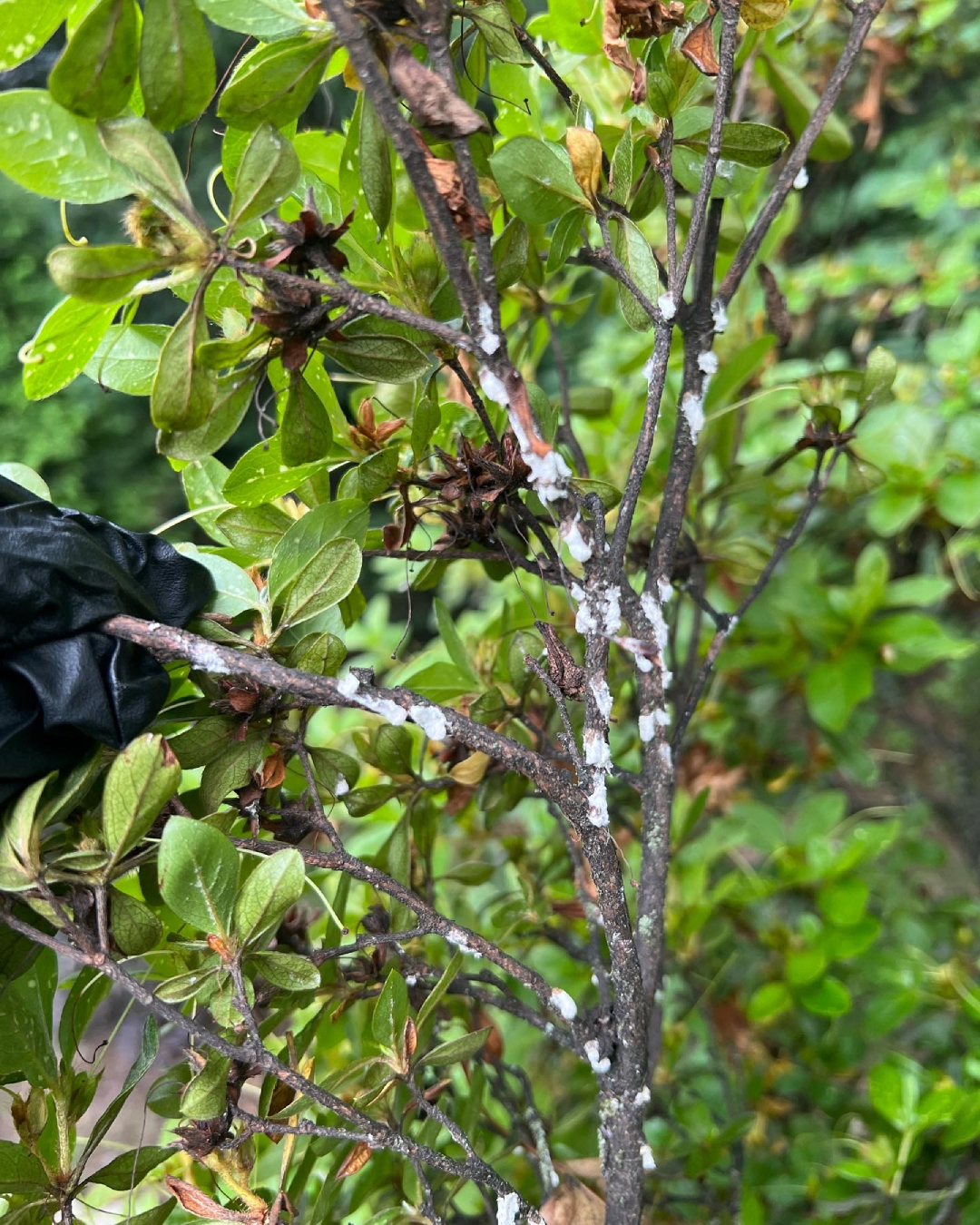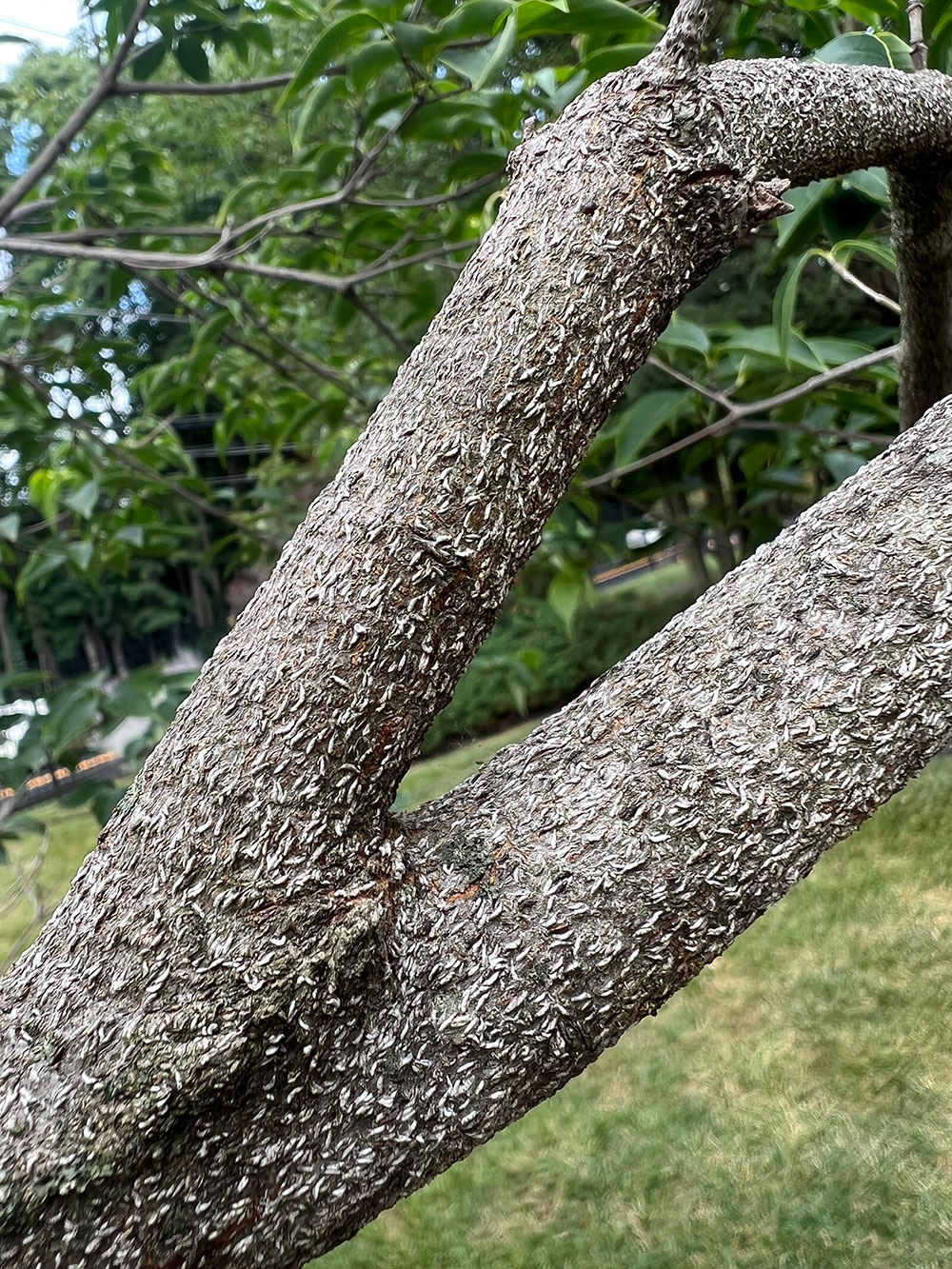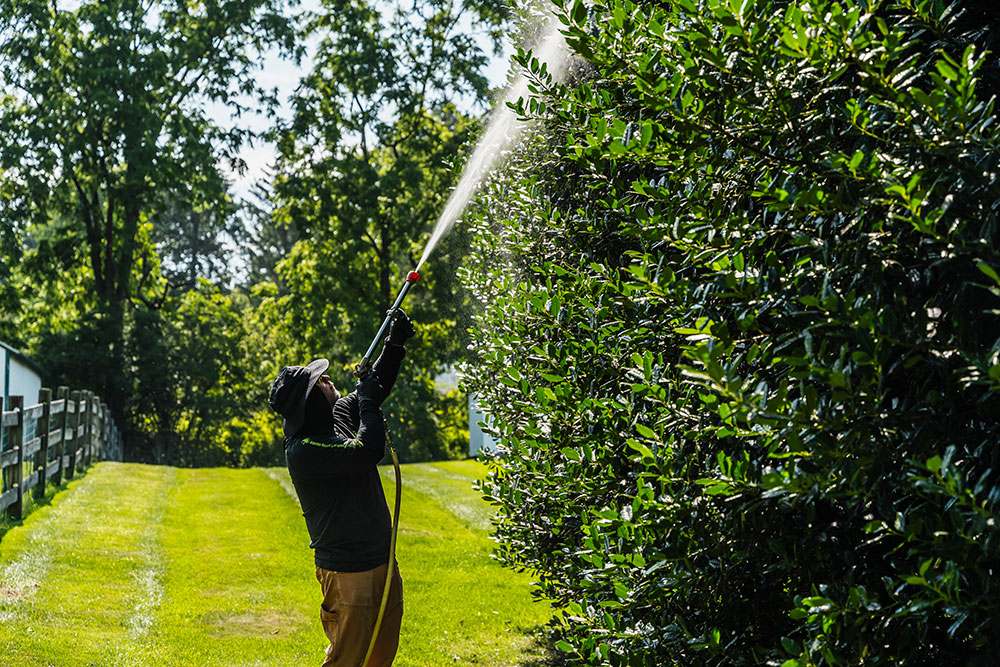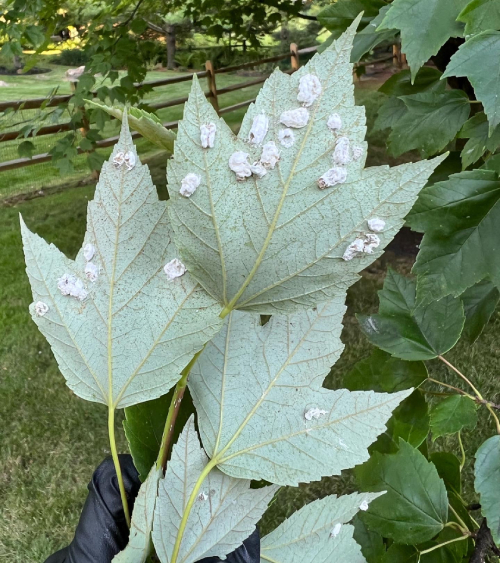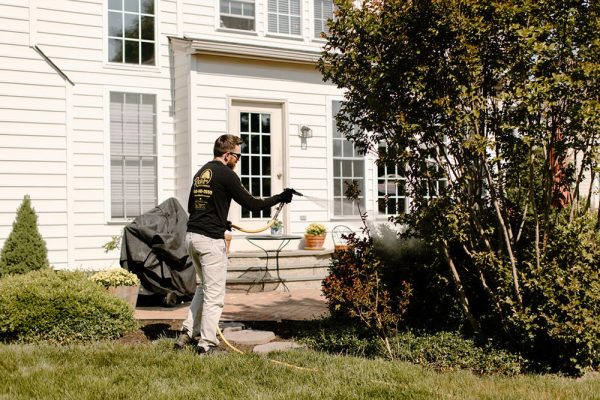Save Your Trees
from Scale Insects
Don’t let Scale insects weaken and/or kill trees and shrubs that you’ve invested time and money nurturing. There are two main types of Scale Insects: armored Scale and soft Scale. Armored Scale insert their piercing mouthparts deep into your plant’s tissue to extract precious nutrients. Soft Scale, on the other hand, use their piercing-sucking mouthparts to drain vital fluids from your plants’ phloem while secreting massive amounts of sticky honeydew. This honeydew coats your foliage and promotes the growth of unsightly black sooty mold, which may interfere with photosynthesis. This honeydew also attracts armies of ants that protect and spread these pests throughout your garden.
What to Expect
Scale on Trees Treatment requires a strategic, thorough approach. Our Certified Arborists follow a proven process to eliminate scale insects while promoting long-term plant health. Here’s our process:
Tap for more information
Scale Insect identification
Our Certified Arborists begin by inspecting your trees and shrubs to assess the extent of the scale infestation. We identify the specific type of scale insect, such as White Prunicola Scale or Cottony Maple Scale, and evaluate plant health to create a customized treatment plan.
Treatment application
We apply eco-friendly and effective solutions, such as OMRI-approved horticultural oil, to eliminate both visible insects and hidden larvae. These treatments are designed to target soft and hard scales while preserving beneficial insects whenever possible.

Tree Pest Control Service Near You
We have extensive industry experience and specialized expertise to effectively address Scale insect problems. We offer a wide range of residential tree wellness services as well, including Deer Protection, Growth Regulations, Soil and Trunk Injections, and more. Deep Root Feeding, Trunk Injections, Soil Injections, and more. We proudly West Chester, PA, as well as Media, Pottstown, Phoenixville, Collegeville, Downingtown, Glen Mills, Malvern, PA, and Wilmington, DE.
Contact Rick’s Certified Arborists
Not sure how to control Scale insects? Contact us at Rick’s Certified Arborists and let our team of experts provide the professional Scale insect treatment your landscape or garden needs.
